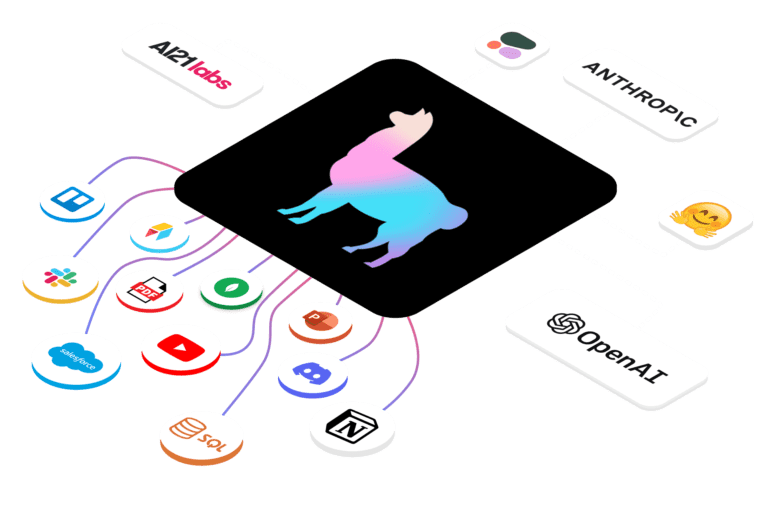TL;DR:
- LlamaIndex, a data framework for Large Language Models (LLMs), raises $8.5M in seed funding led by Greylock.
- The funding will be utilized to develop an enterprise solution based on LlamaIndex’s popular open-source project.
- LLMs face limitations when working with private data, and LlamaIndex aims to address this issue.
- The open-source project has gained significant traction, with 15K Github Stars, 19K Twitter followers, 200K monthly downloads, and 6K Discord users.
- LlamaIndex is observed being used by companies like Uber, Instabase, and Front to prototype LLM-powered features.
- CEO Jerry Liu recognizes the project’s potential to assist enterprises with ingesting and structuring their private data for LLM tasks.
- LlamaIndex’s open-source toolkit is compatible with any LLM and offers an optimized user experience.
- The upcoming enterprise solution will provide a range of services, including data source connectors and security features.
- LlamaIndex aims to eliminate technical and security barriers to data usage, empowering enterprises with efficient data analysis capabilities.
Main AI News:
LlamaIndex, the pioneering data framework designed for Large Language Models (LLMs), has successfully secured $8.5 million in seed funding, with Greylock leading the investment round. Notable angel investors who participated in the funding include Jack Altman, Lenny Rachitsky, Mathilde Collin (CEO of Front), Raquel Urtasun (CEO of Waabi), and Joey Gonzalez (Berkeley), among others. This substantial capital infusion will be utilized by the company to develop an enterprise solution based on its highly acclaimed open-source project.
Although LLMs exhibit vast potential across numerous applications, their efficacy remains restricted to the data on which they are trained. Recently, while delving into the possibilities of GPT-3, machine learning researcher and engineer Jerry Liu identified certain limitations surrounding these models’ ability to interact with data that is exclusive to individuals or enterprises. These data types encompass files (such as PDFs and Powerpoints), workplace applications (such as Notion, Slack, and Salesforce), as well as databases (including Postgres and MongoDB). Consequently, LlamaIndex’s open-source initiative resonated remarkably with the AI community, culminating in an impressive following within a short span of six months—garnering 15K Github Stars, 19K Twitter followers, 200K monthly downloads, and 6K Discord users.
Observing prominent organizations such as Uber, Instabase, and Front utilizing LlamaIndex to prototype LLM-driven features and enhance their data analysis capabilities, Jerry Liu, the CEO and co-founder of LlamaIndex, recognized the potential of the project to profoundly benefit enterprises. Many businesses seek efficient methods to ingest and structure their proprietary data in a manner that facilitates seamless utilization with LLMs, enabling them to perform diverse LLM tasks while obtaining high-quality responses from verifiable sources. Consequently, in March, Liu joined forces with Simon Suo, a co-founder and CTO he had collaborated with during their ML research tenure at Uber, to establish LlamaIndex.
Presently, LlamaIndex’s open-source toolkit boasts compatibility with any LLM, providing users with a streamlined and optimized experience. This toolkit effectively handles an extensive array of data sources, ranging from structured to semi-structured and unstructured text, as well as image data. Its comprehensive functionalities encompass data ingestion, data indexing, and a powerful query engine layer. Furthermore, LlamaIndex’s upcoming enterprise solution, slated for release later this year, will be built upon the foundation of its acclaimed open-source project. This enterprise-grade offering aims to eliminate the technical and security impediments associated with data utilization, delivering a host of valuable services, including robust and scalable data source connectors, as well as vital security features like access control and user management.
Conclusion:
The successful funding round and development efforts by LlamaIndex indicate the growing recognition of the importance of data frameworks for Large Language Models (LLMs) in the market. By addressing limitations surrounding LLMs’ interaction with private data, LlamaIndex aims to provide enterprises with the tools they need to ingest, structure, and utilize their proprietary data efficiently. This signifies a significant step forward in enabling businesses to leverage the full potential of LLMs and obtain high-quality responses from verifiable sources. The project’s rapid growth, strong user base, and support from notable investors highlight the market demand for innovative solutions that enhance data analysis capabilities. LlamaIndex’s offerings have the potential to revolutionize the way enterprises leverage LLMs and gain valuable insights from their data, positioning them at the forefront of the evolving market landscape.

